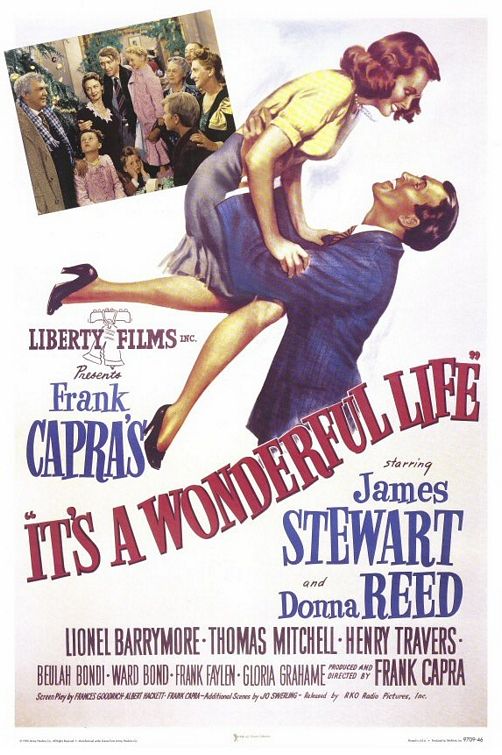"Man’s character is his fate"
| None | Light | Moderate | Heavy | |
|---|---|---|---|---|
| Language | ||||
| Violence | ||||
| Sex | ||||
| Nudity |
What You Need To Know:
While the final message of the movie is applies godly principles, it misses the mark by not even giving lip service to the One who personifies the Truth so highly valued. Hundert learns to overlook failure and focuses on his many successes that testify of his living example that continues to affect his students lives. The Emperor’s Club should be approached with some caution. While it encourages moral living, it may confuse children, especially those raised to understand that it is the power of God that transforms the spirit.
Content:
(ABAB, RH, B, H, L, S, N, A, M) Anti-biblical worldview in that man is a product of his environment and the teacher thinks he can change or save someone through education, encouragement, and cheating a little with revisionist history and moral theme challenged by amorality and the classical humanist perception that man seems to be the center of everything and that education is not only the way to better yourself, but all mankind; 2 profanities, 5 obscenities, one “flip of the bird”, boy talks of girl’s breasts, and flirty talk by girls of male genitals and skinny-dipping; emotional adultery is implied as the teacher has a very strong relationship with another married teacher on campus, no physical relationship is ever implied, yet their intense love for each other is obvious; teenage boys without shirts, glimpse of girl’s bra, and glimpse of nudie magazine centerfold woman is covered except for side of body (nothing graphic); men toast teacher with wine; and, pranks, rebellion, and disrespect.
More Detail:
Arthur Hundert (Kevin Kline) is a classic-history teacher at a private boys school. The school operates under the notion that wisdom is gained for the benefit of others. The school motto translated from Latin is, “The end depends upon the beginning.” Hundert says he believes that a man’s character is his fate and that our stories are written long before we die.
One year a troubled young man, named Sedgewick Bell (Emile Hirsch), joins Hundert’s class a day late. He is not only disruptive, but he’s disrespectful and has no sense of right and wrong. He doesn’t care about virtue and honor which his teacher values. The boy is the son of a too-busy Senator from West Virginia.
When Hundert dutifully goes to speak to the boy’s father about his attitude, the first thing the Senator does is offer him illegal Cuban cigars. The Senator then asks what good is it to learn Greek and Roman history. Among the benefits the history teacher brings up is the revisionist history that the framers of the United States Constitution followed much of the pattern of democracy forged by the Romans.
Hundert states that without the boy’s father to back up what he is teaching, he won’t be able to mold Sedgewick’s character. The father rebukes the teacher and tells him that it is strictly Hundert’s job to teach his boy. “I will mold my son,”says the senator. Throughout the movie, it is obvious that the boy is certainly being molded by his father’s example, even though he will never really know him.
Undaunted Hundert sets out to be Sedgewick’s savior on the sly. He tells him that he believes in him and that he can be at the top of the class if he applies himself. He then lends his student the same high school book he used to learn of Greco-Roman history. He wants the boy to enter and win the annual “Julius Caesar contest.”
The contest carries the highest honor in the school. The winner gets a crown of laurel leaves and is immortalized with his picture on the school wall with all the other winners. One of the boys in the class with Sedgewick, Blythe (Paul Franklin Dano), points out his own father from among the many faces throughout the contest’s history. He obviously wants to win himself and follow in his father’s footsteps.
Sedgewick works hard. He seems authentically encouraged and empowered by Hundert’s words. He works and earns his way to fifth place overall. His participation in the final testing round comes within one grade of earning the position of the top three contestants to face off in a final elimination round of verbal examination. Hunbert is so proud of his own efforts to make a difference in the boy’s life that he changes the A- he had given Sedgewick’s paper to an A+. This drops Blythe, who had actually earned the third position, to fourth and dashes his chance at emulating his father. The teacher wants so much to make a difference in Sedgewick’s life – he wants to see that he’s made a positive difference in anyone’s life – that he doesn’t take into consideration what he might be doing to Blythe. He doesn’t consider his own conscience.
Unfortunately, late into the final contest questions, Hundert realizes that Sedgewick is cheating. He tells the school’s headmaster, sitting on the front row, but he is told to ignore it because the senator is sitting one row back. Hundert asks a question that he knows the boy would never get, but all the other boys in the class would. He has a plaque over his door that commemorates an ancient king from Elan. He made Blythe read it the very first day. Anyone in the class that was there that day would have been able to answer that question. Sedgewick, who arrived a day late, outright says he doesn’t know and his opponent takes the crown.
When confronted, the boy asks, “why not cheat?” Then points out that the teacher didn’t call him out due to his father, the senator, being in the crowd. Hundert denies it, but is visibly shaken by his own continuing string of weak-valued decisions. They both know the truth.
Sedgewick goes back to his old shenanigans and bad grades. He drags a lot of the boys into mediocrity with him. It seems that the other boys saw him getting away with everything and the high standard of discipline held by the school was lost because of politics. As a result, Hundert feels like a failure as a teacher. He couldn’t change the troubled boy.
The Senator makes sure his son goes to Yale and that’s that it seems. However, about ten years later, Sedgewick pops up again and wants a rematch. He wants to clear his name. Each of the old classmates are reunited from their prestigious positions in industry, law, and higher education. The only way Sedgewick Bell will donate the millions of dollars to his high school alma mater, so they can build a new 25,000 square foot library edition (in his father’s name), is if Hundert will come out of retirement to mediate the contest as before.
Hundert has high hopes that Sedgewick has learned from his past and all will be mended. What actually happens brings disappointment, revelation, reward, confession, repentance, forgiveness, restitution, renewal, and hope. While the final message of the movie is of a redemptive nature and applies godly principles it misses the mark by not even giving lip service to the One who personifies the Truth so highly valued. Hundert was so focused on his failure with Sedgewick over the years that he overlooked the larger number of his past students who have come to tell him that his life and example continues to be a kindling and force in their lives. The movie leaves you with a feel-good, yet hollow, humanistic message that “look at what one man’s good example can contribute to the world.”
The Emperor’s Club should be approached with some caution as it encourages moral living, but it may confuse children raised to understand that it is the power of God that transforms the spirit. Knowledge and good deeds aren’t necessarily equated with righteousness.
Now more than ever we’re bombarded by darkness in media, movies, and TV. Movieguide® has fought back for almost 40 years, working within Hollywood to propel uplifting and positive content. We’re proud to say we’ve collaborated with some of the top industry players to influence and redeem entertainment for Jesus. Still, the most influential person in Hollywood is you. The viewer.
What you listen to, watch, and read has power. Movieguide® wants to give you the resources to empower the good and the beautiful. But we can’t do it alone. We need your support.
You can make a difference with as little as $7. It takes only a moment. If you can, consider supporting our ministry with a monthly gift. Thank you.
Movieguide® is a 501c3 and all donations are tax deductible.

Now more than ever we’re bombarded by darkness in media, movies, and TV. Movieguide® has fought back for almost 40 years, working within Hollywood to propel uplifting and positive content. We’re proud to say we’ve collaborated with some of the top industry players to influence and redeem entertainment for Jesus. Still, the most influential person in Hollywood is you. The viewer.
What you listen to, watch, and read has power. Movieguide® wants to give you the resources to empower the good and the beautiful. But we can’t do it alone. We need your support.
You can make a difference with as little as $7. It takes only a moment. If you can, consider supporting our ministry with a monthly gift. Thank you.
Movieguide® is a 501c3 and all donations are tax deductible.




 - Content:
- Content: 


